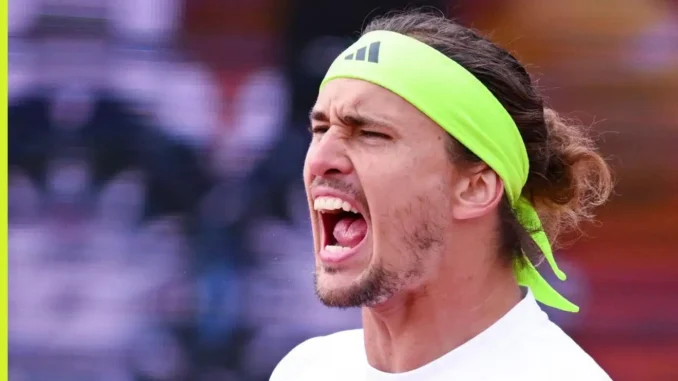
Alexander Zverev, the German tennis prodigy and world No. 2, has been a dominant force in men’s tennis for nearly a decade. Yet, even with his impressive resume—seven Masters 1000 titles, two ATP Finals crowns, and an Olympic gold medal—the 28-year-old remains acutely aware of the relentless grind required to stay among the elite. Following a surprising round-of-16 loss to Argentina’s Francisco Cerundolo at the 2025 Madrid Open, Zverev faced a pointed question in a press conference: Is it getting “easier” to reach and maintain a top-10 ranking in the ATP today, given the evolving landscape of the sport? His response was unequivocal and revealing, offering a glimpse into the cutthroat nature of modern tennis.
“No, definitely not. It’s much more difficult,” Zverev declared, shaking his head with conviction. “The depth of the players is much more.” Reflecting on his own ascent to the top 10 in 2017 at age 20, he acknowledged the formidable presence of legends like Novak Djokovic, Rafael Nadal, Roger Federer, and Andy Murray. “Yes, the top was unbelievable, but the level from 10 to 20 and then 20 to 30 was much lower than it is now,” he elaborated. Zverev’s candid assessment underscores a seismic shift in the sport: while the era of the “Big Four” set an unparalleled standard at the pinnacle, today’s ATP Tour is defined by a deeper, more competitive field where upsets are commonplace, and no ranking is secure.
Zverev’s journey to the upper echelons of tennis began early. Born in Hamburg, Germany, to Russian parents who were both professional players, he was steeped in the sport from childhood. By 17, he was one of the youngest Challenger Tour title winners in history, and at 20, he upset Federer on grass and debuted in the top 20, a feat not seen from a player so young since Djokovic. His consistency is remarkable—save for a brief dip after a severe ankle injury at the 2022 French Open, he has been a near-permanent fixture in the top 10 since 2017. Yet, his recent loss to Cerundolo, ranked outside the top 20, illustrates the challenge he describes. “I don’t think I played terrible,” Zverev remarked after the Madrid defeat, a match that marked his third career loss to the Argentine. It was a bitter pill following his triumphant title run in Munich just weeks earlier, where he claimed his third BMW Open crown.
The depth Zverev speaks of is evident across the 2025 season. Players like Cerundolo, Britain’s Jack Draper, and Italy’s Lorenzo Musetti have surged in the rankings, capitalizing on the absence of retired greats like Nadal and Federer. The Madrid Open itself showcased this trend, with rising stars like Jakub Mensik reaching the quarterfinals. Zverev’s own 2025 campaign has been a mix of brilliance and frustration. He started the year with a final in Auckland, reached the Miami Open quarterfinals, and won in Munich, but early exits in Monte Carlo and Madrid highlighted the unpredictability of the tour. His 55-70 record against top-10 players reflects both his ability to compete with the best and the fine margins that separate victory from defeat.
As Zverev prepares for the Italian Open in Rome, a tournament he won in 2017 and 2024, he carries the weight of expectation. A three-time Grand Slam finalist, he remains in pursuit of that elusive major title, a goal made tougher by the emergence of players like Jannik Sinner and Carlos Alcaraz. Off the court, Zverev has faced scrutiny, including a settled domestic abuse case in 2024, but his focus remains on his craft. “If I had to choose one word to define Alexander Zverev, it would be: resilient,” said his coach Patrick Mouratoglou, praising his ability to rebound from setbacks like his 2022 injury.
Zverev’s insights reveal a sport in transition. The depth he describes—where players ranked 20 to 30 can challenge the elite on any given day—makes every match a battle. For a player who has trained at the Mouratoglou Academy, played exhibitions in Bayern Munich’s stadium, and counts Andrey Rublev as a childhood rival, the journey is as personal as it is professional. As he eyes Roland Garros and beyond, Zverev’s message is clear: reaching the top 10 may have been a milestone, but staying there in today’s era is a war of attrition, waged on courts across the globe.
Leave a Reply